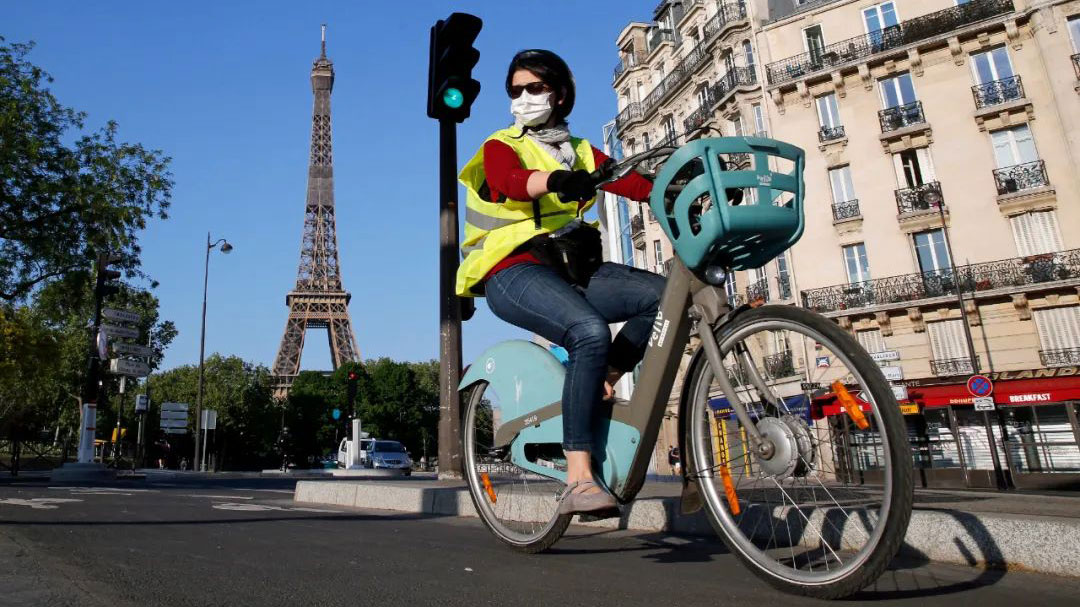- Home
- News
- Data and future forecasts for the domestic and international markets for e-bikes in the first half of 2020.
Data and future forecasts for the domestic and international markets for e-bikes in the first half of 2020.
As we all know, the outbreak has caused great impact on the global population, after the outbreak relief countries face the problem of resumption of work, safe travel, bicycles, electric bicycles, electric scooters and other personal light travel products demand ushered in an outbreak, then this year’s industry situation, how the data, future forecast data, Wheelive’s collection and collation of the relevant data as follows:
The domestic bicycle industry from January to July 2020.
Source: Ministry of Industry and Information Technology of China.
First, the production situation.
From January to July 2020, two-wheeled bicycles completed production of 23.60 million units, up 9.2% YoY, and e-bikes completed production of 15.501 million units, up 18.7% YoY.
In the same month, the country’s two-wheeled bicycle production reached 4.498 million units, up 32.1% YoY, while the output of e-bikes reached 3.741 million units, up 49.5% YoY.
Second, the situation of benefits.
From January to July 2020, the operating income of bicycle manufacturers above the national scale (annual revenue of more than 20 million yuan) was 86.52 billion yuan, up 8.5% YoY, and the total profit was 3.77 billion yuan, up 28.4% YoY. Among them, the two-wheeled bicycle manufacturing industry revenue of 27.49 billion yuan, up 0.9% YoY, the total profit of 1.07 billion yuan, up 20.7% YoY;
January-July 2020 Taiwan bicycle, e-bike export performance.
From January to July 2020, Taiwan’s total bicycle exports were 905,016, down 29.69 percent from 1.287 million units in the same period in 2019, and total exports amounted to about $582 million, down 22.38 percent from $750 million in the same period in 2019. The average unit price of exports rose from 583.46 to $644.07.
From January to July 2020, Taiwan’s total E-Bike exports amounted to 409,927 vehicles, an increase of 20.78 percent from 363,181 units in the same period in 2019; Taiwan exported 264,000 vehicles to the European Union in the January-July period, up 11.81 percent, and 99,000 vehicles to the U.S., up 49.12 percent.
International section:
Germany.
From January to June 2020, 3.2 million bicycles and e-bikes were sold in Germany, up 9.2% year-on-year. Of these, 1.1 million e-bikes are expected, an increase of 15.8 per cent.
Production of bicycles and e-bikes in Germany has fallen slightly. According to the Federal Statistical Office, imports of bicycles and e-bikes fell by -14.4% in the first half of the year, with e-bikes accounting for less than 28% of imports. Exports of bicycles and e-bikes also declined. Exports fell by nearly -2.6% in the first half of the year, with e-bikes accounting for about 38% of exports
CONEBI predicts that sales of e-bikes will more than double in 2025.
Total European bicycle sales (including traditional and e-bikes) will be around 20 million units in 2019, with e-bike sales up 23%, driving overall growth in the bicycle market. For the first time, sales of e-bikes in Europe exceeded 3 million, accounting for 17% of all bicycles.
In recent years, the European e-bike market continued to rise, the industry development is extremely optimistic. CONEBI predicts that sales of e-bikes will more than double to 6.5 million units over the next five years.
ONEBI Chairman Boucher: 2019 has been a very good year for the EU cycling industry, as reflected in the continued boom in e-bikes in Europe and the increasing capacity of bicycle spare parts. CONEBI maintains close ties with European government agencies, actively plays an important role in the green economy of the EU, and contributes to the achievement of the objectives of the EU Green Agreement.
CONEBI General Manager Marcelo: If the following three basic conditions can be met, the European electric power bicycle market will continue to flourish in the next few years.
1. EPAC (electric scooter with a top speed of 25km/h and maximum power of 250W) is currently in a favourable position at the regulatory level (not included in the legal procedure for EU category certification), which means that there is no category certification, no mandatory motor vehicle insurance, no mandatory motorcycle helmet, no driving licence and the ability to drive in a dedicated bike lane.
2. In response to the epidemic, the EU’s good trend of advocating bicycle travel continues, and more investment in bicycle infrastructure construction has provided dedicated lanes and safety for bicycle travel.
3. The continuous improvement of the intelligent transportation system within the legal and technical framework of the European Union enables cars and buses to automatically detect unforeseen cyclists at blind spots on the road in a timely manner, thus making bicycle travel safer.
Total European bicycle production increased by 11% year-on-year in 2019, with electric vehicle production increasing by 60% year-on-year, showing strong growth. This has prompted many manufacturers to invest in production and assembly, with some transferring operations back to Europe. The gross domestic product of bicycle parts will reach 2 billion euros in 2019.
Investment in the bicycle industry has also increased employment, providing more than 60,000 direct jobs and 60,000 indirect jobs upstream and downstream. A total of 120,000 jobs were created, up 14.4% year-on-year and 32% year-on-year in 2017.
Original by Wheelive

